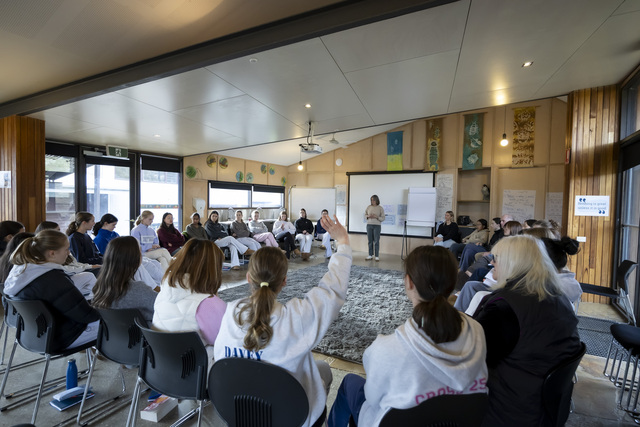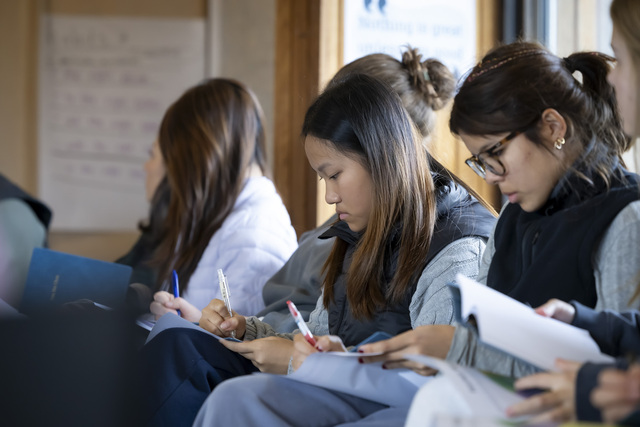A national-first partnership is helping teens navigate the ethical and social challenges of a world overwhelmed by artificial intelligence, social media, and climate change.
Monash University’s Cranlana Centre for Ethical Leadership is delivering an ethics program to Year 9 students at St Catherine’s School.
Cranlana’s executive-level ethics curriculum – popular among senior execs, judges, and policymakers – will be embedded in the classroom.
“Today’s teenagers face dilemmas that most adults weren’t ready for until their thirties,” Cranlana CEO Matt Finnis said.
“We can’t protect them from these challenges, but we can give our future leaders the ethical framework to act on their values under pressure.”
Mr Finnis said the program would develop students’ capacity for ethical thinking and moral reasoning at a crucial stage in their development.
It consists of an intensive two-week residential in Narmbool plus classroom work throughout the year, connecting timeless philosophical wisdom with real-world application.
“Rather than a one-off seminar or values week, the program will embed ethical decision-making and leadership into a core part of students’ learning,” Mr Finnis said.
“It’s not about telling them what to think or how to behave, it’s about helping them develop the tools to think ethically, under pressure, and with others in mind.”
The eSafety Commissioner’s Youth Digital Participation report found that four in five teens felt pressure to present a perfect version of themselves online, while 42 percent had experienced some form of online hate or harassment.
The rise of generative AI tools like ChatGPT has raised questions about authenticity, academic integrity, and the erosion of critical thinking.
Mr Finnis said these were not just technological shifts but ethical dilemmas, and today’s adolescents were often left to navigate them without the language or frameworks to do so.
St Catherine’s and Cranlana hope the partnership will serve as a model for other schools across the country, proactively equipping Australia’s youth with moral courage and the ability to make ethical decisions in a world where it will most certainly be asked of them.
St Catherine’s principal Natalie Charles said the partnership was about making space – physically and symbolically – for students to engage with fundamental questions of individual and collective goodness, “moving beyond external pressures to explore deeper truths about themselves and their place in the world”.
“We want our students to leave us feeling optimistic about the future and their capacity to contribute in ways that ultimately enrich the very fabric of society at a time when the pursuit of truth, beauty, and goodness has never been more pressing,” she said.









